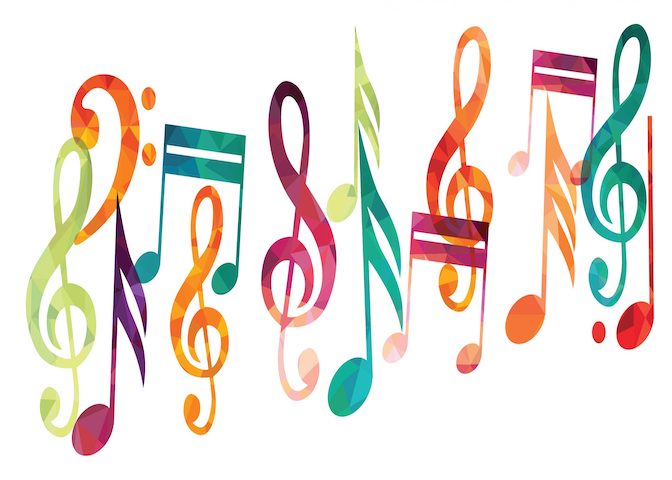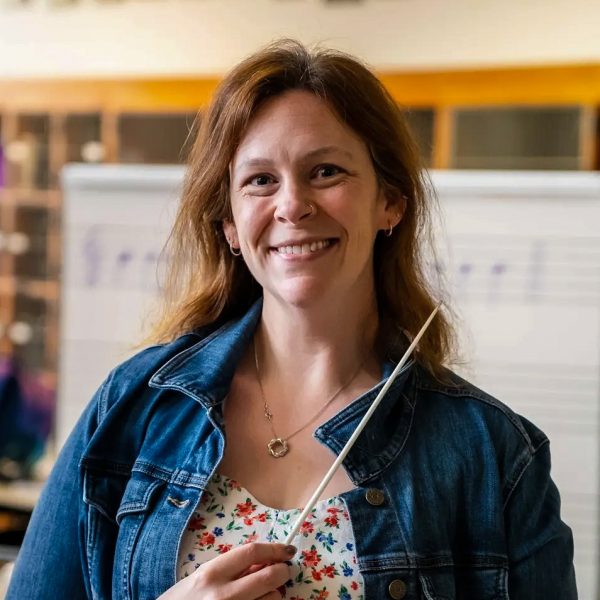Pitch Perfect
Source: Burritt On The Mountain
Perfect pitch is the ability to identify or recreate a given music note without a reference tone.
Absolute pitch, also known as perfect pitch, is the ability to recognize or recreate any given note without a reference point. This is separate from relative pitch, which is the ability to identify notes given a reference point by being able to tell how far one note is from another. There are two types of absolute pitch, known as active and passive absolute pitch. Someone with active perfect pitch is able to produce any given pitch, whereas someone with passive perfect pitch can only name notes, not produce them.
Only one in 10,000 people possess this auditory skill, so it is widely regarded as impressive. Annabelle Lee (III), who has active absolute pitch, says absolute pitch is helpful because she can “pick up songs and pieces quickly.” It is not as beneficial to the performing arts, however, as one may believe. Lee explains, “I realized that I could no longer enjoy music as just a pretty tune. My brain would automatically analyze the keys and modulations, which adds another level of complexity and maybe even stress to music.”
Similarly, Boston Latin School orchestral conductor Ms. Susan Shipley agrees, adding that “[absolute pitch] can be a most helpful tool to singers and instrumentalists without fixed keys to find a certain pitch, especially one involving a large interval. […] There are certainly times that perfect pitch might have saved me a lot of practice time.” She also says, however, that “absolute pitch does not indicate that a person has, or will have, musical ability.”
Additionally, ensemble playing is an essential part of playing music, but having absolute pitch can actually be unhelpful.
Ms. Shipley offers an anecdote on this, saying, “In college, I sang in a choir next to a woman with perfect pitch. When we sang acapella, the choir’s pitch would invariably drop a little. She was still singing exactly the right note, but it would sound quite sharp compared to the rest of the choir.”
There is also significant dispute within the music community about absolute pitch. Some believe true absolute pitch can only occur if one is born with it, but there’s also evidence that says otherwise. For example, a study at the University of Chicago showed that musical training can give people the ability to recreate notes without any reference. Some individuals call this “pseudo-absolute pitch,” implying that this is an imitation of the inherent absolute pitch.
Mr. Jesse Southwick, a physics teacher, says, “I’m sure that people who spend a lot of time with music can develop their ability to differentiate and create pitches.” He explains the science behind different pitches: “The frequency [of sound waves] is the number of vibrations per second, and the human brain can hear those frequencies even when mixed with many other frequencies, such as when a chorus or orchestra is playing. We call it ‘pitch’ but basically it’s frequency, or the human experience of frequency.”
Genetic variations may also contribute to absolute pitch. These variations could possibly be autosomal dominant genetic traits, which means that the gene causing absolute pitch could be passed down from one parent to their child. There is also a genetic overlap with music-related and non-music-related synesthesia, as well as a higher rate of absolute pitch in the autistic population. One’s environment may influence whether they have perfect pitch as well; speakers of tonal languages such as Chinese or Yoruba are more likely to have it.
Some celebrities with absolute pitch include Charlie Puth, Mariah Carey and Michael Jackson. Many renowned classical music composers such as Wolfgang Amadeus Mozart, Camille Saint-Saëns and Ludwig van Beethoven are also known to have had it.







